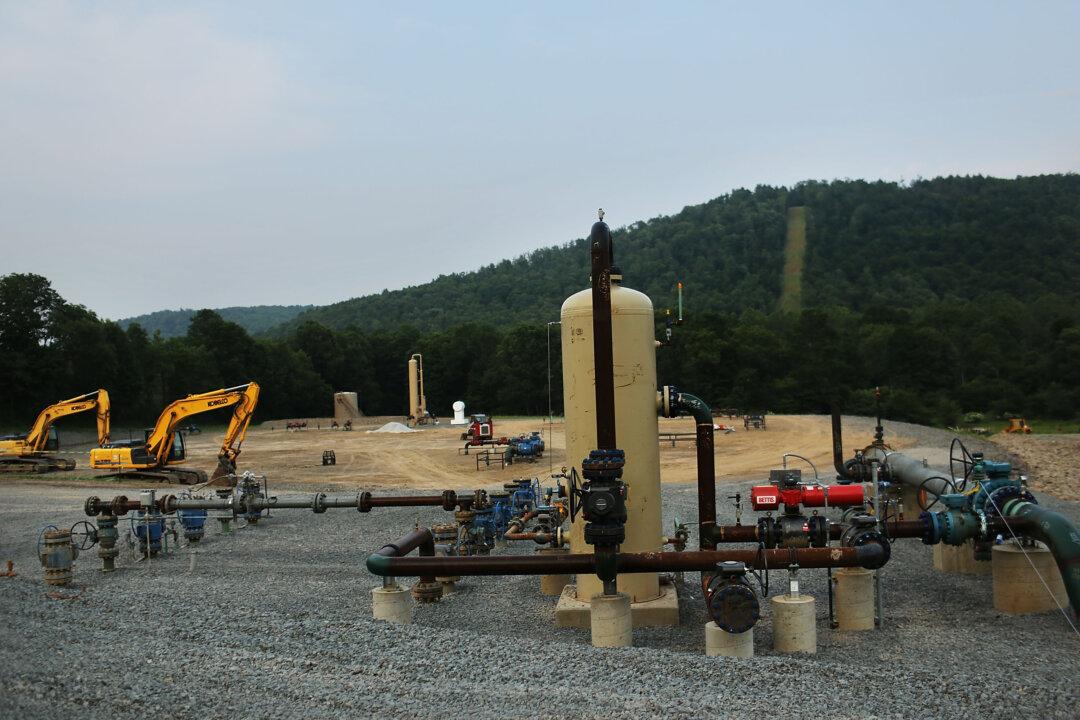New Yorkers’ opposition to the natural gas extraction method known as fracking has continued to rise in recent weeks, as the expiration of the state’s fracking moratorium looms closer.
A new poll conducted by the National Resources Defense Council (NRDC), an environmental activist group, shows 56 percent of New Yorkers oppose fracking in the state. The survey of 802 New Yorkers was conducted by a third-party research firm in late September.
A similar survey by Quinnipiac University in mid-August found that only 48 percent of voters opposed fracking.
Anti-fracking activists have redoubled their efforts in recent weeks, following Gov. Cuomo on the campaign trail in an attempt to have him take a stance on fracking before the election, but the governor has kept a steadfast ambivalence on the subject.
Unlike in the Democratic primary, where his opponent Zephyr Teachout campaigned vigorously against fracking, Cuomo stands as the anti-fracking candidate in the general election by merely not taking a stance on the subject, as his Republican challenger Rob Astorino has repeatedly pledged support for fracking.
“If the Energy Department, the EPA, and the Interiors Department have said that [fracking] is safe, why aren’t we doing it in New York?” Astorino said last month. “We will do it in New York next year when I’m governor.”
The NRDC poll also found that 79 percent of New Yorkers support the moratorium on fracking currently in place in the state, which was instituted in 2008 to give state agencies time to assess the potential health risks associated with fracking.
The Science of Fracking
Reports of the Cuomo administration’s attempt to influence a study on fracking by the U.S. Geological Survey—funded mostly by the state government—has raised questions about the impartiality of those assessments. The online news outlet Capital New York found that the final version of a study included a sentence not found in earlier drafts after it was reviewed by state officials.
The added sentence stated that the risk of methane leakage from fracking could be countered by well-constructed natural gas wells. Researchers have traced water contamination in drinking-water wells to faulty gas wells and pipes, not fracking per se.
“Many of the leaks probably occur when natural gas travels up the outside of the borehole, potentially even thousands of feet, and is released directly into drinking-water aquifers” Robert Poreda, a geochemistry professor at the University of Rochester, said in a press release.
Poreda and others had published in September a study of eight contaminated water wells in Pennsylvania and Texas, which found that the water wasn’t contaminated by methane released directly through fracking.
“These results appear to rule out the migration of methane up into drinking water aquifers from depth because of horizontal drilling or hydraulic fracturing, as some people feared,” Avner Vengosh, a Duke geochemist and co-author of the study, said in the press release.
Still, expansion of natural gas drilling would probably require the construction of additional pipelines. New York City’s rising natural gas usage had led to the building of a pipeline under Far Rockaway Beach, which had provoked protests from local residents, and the project was briefly halted in July.





